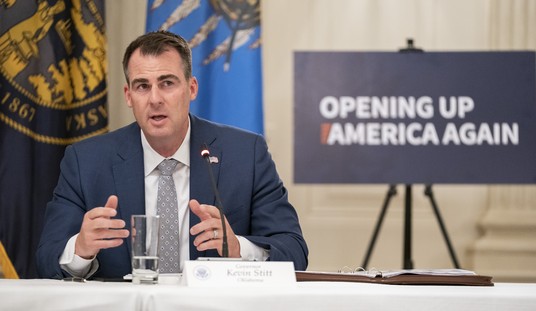Republican FCC commissioner Brendan Carr sent a letter to Google and Apple on June 24 warning that, thanks to a new report from Buzzfeed, the notion users’ data from the very popular app TikTok is being stored only in the U.S. is false, and that, as Buzzfeed’s report noted, “everything is seen in China.”
The letter is not yet available on Carr’s FCC website, but the commissioner made it available in a tweet thread Tuesday.
“TikTok is not what it appears to be on the surface. It is not just an app for sharing funny videos or meme. That’s the sheep’s clothing,” he said in the letter. “At its core, TikTok functions as a sophisticated surveillance tool that harvests extensive amounts of personal and sensitive data.”
TikTok doesn’t just see its users dance videos.
It collects search and browsing histories, keystroke patterns, biometric identifiers, draft messages and metadata, plus it has collected the text, images, and videos that are stored on a device's clipboard. pic.twitter.com/GKheArMM5X
— Brendan Carr (@BrendanCarrFCC) June 28, 2022
Numerous provisions of Apple’s & Google’s policies are relevant to TikTok's pattern of surreptitious data harvesting—a pattern that runs contrary to its public representations.
And there’s plenty of precedent for holding TikTok accountable by booting it from these app stores. pic.twitter.com/QH1w4ERDdb
— Brendan Carr (@BrendanCarrFCC) June 29, 2022
What’s interesting about Carr’s letter, which follows an attempted ban of the app (owned by Beijing-based ByteDance Ltd.) by the Trump administration — an effort ultimately blocked by two federal judges and not taken up by the Biden administration — is that Carr isn’t just warning the two tech companies about the dangers posed by the app. Carr also asks that both Apple and Google parent-company Alphabet, Inc. explain why they continue to make the app available despite it already being banned by the U.S. military. Furthermore, Carr wants some explanation as to why they would continue to make the app available to download now that Buzzfeed has revealed what looks like a falsehood about user data being routed solely to American databases.
“It is clear that TikTok poses an unacceptable national security risk due to its extensive data harvesting being combined with Beijing’s apparently unchecked access to that sensitive data,” Federal Communications Commission member Brendan Carr wrote in a letter to Apple and Google, a unit of Alphabet Inc.
…
Mr. Carr, a Republican, requested that Apple and Google remove TikTok from their app stores for violating their safety policies. Mr. Carr’s letter, which was earlier reported by CNBC, was dated Friday. He tweeted and emailed about it on Tuesday.
CNBC reported Wednesday that Carr is requesting a response from the two tech giants by early next month.
Carr’s letter, dated June 24 on FCC letterhead, said if the Apple and Alphabet do not remove TikTok from their app stores, they should provide statements to him by July 8.
The statements should explain “the basis for your company’s conclusion that the surreptitious access of private and sensitive U.S. user data by persons located in Beijing, coupled with TikTok’s pattern of misleading representations and conduct, does not run afoul of any of your app store policies,” he said.
While the Biden administration continues to study whether China’s alleged unfettered access to user information of a reported 1-plus billion active users, new reports of how foreign nations use social media to affect U.S. policy have been breaking simultaneously. In a new report titled, “Chinese posed as local Texans online to target rare earth producer,” The Washington Times reports that, “China conducted a sophisticated disinformation campaign against a company building a rare earth minerals facility in Texas for the Pentagon, according to the Pentagon and a cybersecurity firm.”
Fake Twitter accounts claimed the Texas plant would cause irreversible environmental damage, Mandiant stated in a blog post report. The fake accounts also stated that the plant would expose residents to radioactive contamination and health risks, including cancer, genetic mutations and deformities in newborns.
With concerns coming from the left about the promulgation of disinformation online, Carr’s request that tech companies explain why they allow apps that give China — a known source of propaganda — the opportunity to review social media user data is a good idea.













Join the conversation as a VIP Member